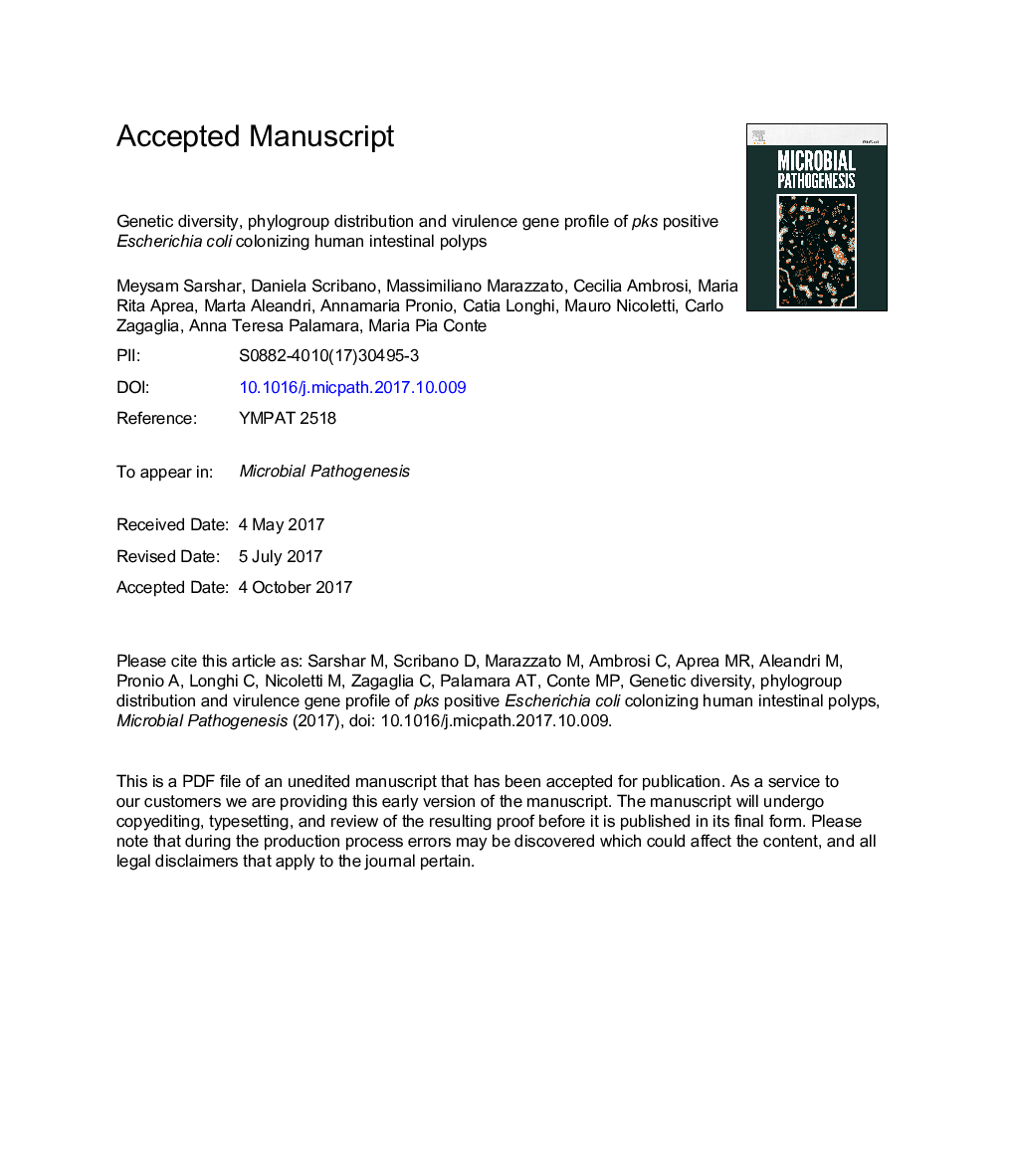| کد مقاله | کد نشریه | سال انتشار | مقاله انگلیسی | نسخه تمام متن |
|---|---|---|---|---|
| 5673536 | 1593677 | 2017 | 16 صفحه PDF | دانلود رایگان |
عنوان انگلیسی مقاله ISI
Genetic diversity, phylogroup distribution and virulence gene profile of pks positive Escherichia coli colonizing human intestinal polyps
دانلود مقاله + سفارش ترجمه
دانلود مقاله ISI انگلیسی
رایگان برای ایرانیان
موضوعات مرتبط
علوم زیستی و بیوفناوری
ایمنی شناسی و میکروب شناسی
میکروب شناسی
پیش نمایش صفحه اول مقاله

چکیده انگلیسی
Some Escherichia coli strains of phylogroup B2 harbor a (pks) pathogenicity island that encodes a polyketide-peptide genotoxin called colibactin. It causes DNA double-strand breaks and megalocytosis in eukaryotic cells and it may contribute to cancer development. Study of bacterial community that colonizes the adenomatous polyp lesion, defined as precancerous lesions, could be helpful to assess if such pathogenic bacteria possess a role in the polyp progression to cancer. In this cross-sectional study, a total of 1500 E. coli isolates were obtained from biopsies of patients presenting adenomatous colon polyps, the normal tissues adjacent to the polyp lesion and patients presenting normal mucosa. pks island frequency, phylogenetic grouping, fingerprint genotyping, and virulence gene features of pks positive (pks+) E. coli isolates were performed. We found pks+E. coli strongly colonize two patients presenting polypoid lesions and none were identified in patients presenting normal mucosa. Predominant phylogroups among pks+E. coli isolates were B2, followed by D. Clustering based on fragment profiles of composite analysis, typed the pks+ isolates into 5 major clusters (I-V) and 17 sub-clusters, demonstrating a high level of genetic diversity among them. The most prevalent virulence genes were fimH and fyuA (100%), followed by vat (92%), hra and papA (69%), ibeA (28%), and hlyA (25%). Our results revealed that pks+E. coli can colonize the precancerous lesions, with a high distribution in both the polyp lesions and in normal tissues adjacent to the lesion. The high differences in fingerprinting patterns obtained indicate that pks+E. coli strains were genetically diverse, possibly allowing them to more easily adapt to environmental variations.
ناشر
Database: Elsevier - ScienceDirect (ساینس دایرکت)
Journal: Microbial Pathogenesis - Volume 112, November 2017, Pages 274-278
Journal: Microbial Pathogenesis - Volume 112, November 2017, Pages 274-278
نویسندگان
Meysam Sarshar, Daniela Scribano, Massimiliano Marazzato, Cecilia Ambrosi, Maria Rita Aprea, Marta Aleandri, Annamaria Pronio, Catia Longhi, Mauro Nicoletti, Carlo Zagaglia, Anna Teresa Palamara, Maria Pia Conte,